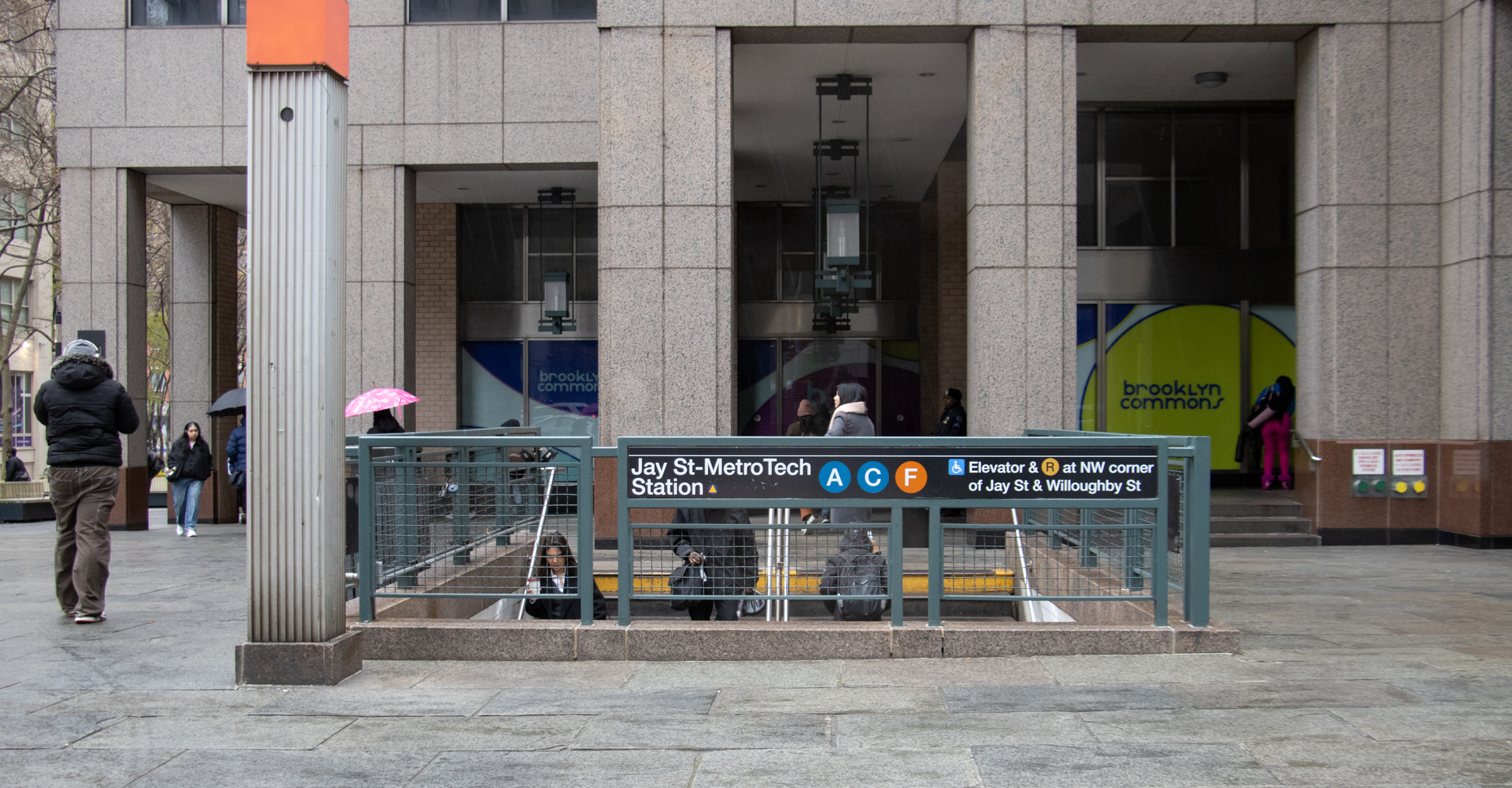Inside Third & Bond: Week 56
The Third & Bond bloggers go the interview route this week. This week we have an interview with our intrepid Code & Zoning Consultant, who we’ve unwittingly referred to as merely an Expeditor. Happily for us, Irene Berzak of Berzak Schoen has been working with The Hudson Companies for many, many years. The relationship is…

The Third & Bond bloggers go the interview route this week.
This week we have an interview with our intrepid Code & Zoning Consultant, who we’ve unwittingly referred to as merely an Expeditor. Happily for us, Irene Berzak of Berzak Schoen has been working with The Hudson Companies for many, many years. The relationship is based on our shared approach to getting a job done: do it the right way. (3B = Third & Bond; IB = Irene Berzak).
 3B: How long have you been an expeditor?
3B: How long have you been an expeditor?
IB: Since 1984.
3B: How did you find your career path?
IB: I started as a television technician, burned out and joined the family architectural firm with my dad, mom and brother. My mother was a code consultant and Dad is a licensed architect
3B: When you meet someone at a party and they ask you what an expeditor does, what do you say?
IB: Beg.
3B: What kinds of things have you done for Third & Bond?
IB: Begged and prayed.
3B: You said it! More specifically though…
IB: Full zoning review, full code review. Preparation of all applications, filing of all the same except for demo applications. Follow through to full approval on all jobs.
3B: That is a lot of work, especially since we have to file 8 sets of everything for our 8 lots, even though there’s only 44 units. But it doesn’t end with permitting — we’ve gotten a lot of stop work orders on this job for things we wouldn’t have before. What gives?
(continued below)
IB: DOB has tightened its scrutiny of construction because there were so many accidents and deaths on jobsites. Patricia Lancaster and now Robert LiMandri have set up special units to check on new construction. Some are very zealous.
3B: What changes have you seen at the Department of Buildings in the last year or so?
IB: It has gone from a manageable, public-friendly agency to a nightmare.
3B: Dare we ask, what other changes at DOB do you anticipate?
IB: I hope that it will become more user friendly and have more staff but in the current economic conditions I don’t see that happening.
3B: So let’s hearken back to the good, old days. What are some of the things that are different at DOB today compared with when you started in the 80s?
IB: Have you heard the one about how the expeditors used to sit in the lobby of 1 Centre St starting at midnight and pass around a piece of paper for a list of names so that we could get walk-in appointments with the plan examiners? One person would start the list, put his name at the top and hand it to the next person who came in. That person would sign it and hold it until the next person and so on. Another way we used to deal with long lines was to put our files on the floor as placeholders. Whoever was around would push the files along as the line advanced. There was also a time when bribery was fairly common. For example, an inspector would expect money before anything would get done. Then in the 90s a lot of people went to jail. I heard of one person who went to jail after taking $1 to get a folder from the file room. After the crackdown sometimes you had to wait around for an inspector because there were so few left.
3B: Those are new stories to us though we did hear one about expeditors leaving their files in bathroom ceiling tiles so they wouldn’t have to lug them around. We are impressed by the code of ethics to follow these informal arrangements. Expeditors seem like their own culture of people you spend hours upon hours with bureaucrats—wheedling, arguing, cajoling, but always being respectful of the line between appropriate and inappropriate behavior. You are barraged by clients who think every issue is an emergency for which you should drop all other work. You carry an institutional memory that stretches through decades of employees, Codes, and interpretation changes. Not everyone is tough enough for this kind of job. Have you ever seen an expeditor meltdown?
IB: YES and he punched a hole in a wall of the plan exam section.
3B: Yikes. Better to punch the wall than the plan examiner or another expeditor. Speaking of, over the years you must have gotten to know a lot of the other expeditors pacing the halls. What’s the interaction like amongst expeditors? Competitive?
IB: YES.
3B: Friendly?
IB: YES.
3B: Is there a hierarchy in the expeditor social scene? Like, if you’re in line before someone else but they’re a forty-year veteran expeditor, will you let them cut?
IB: NEVER.
3B: What about the people on the other side of the table?
IB: It depends a lot on how the executive floor is dealing with the staff. There are consumer-friendly periods and then us-versus-them periods. One of the problems is that the clerical staff isn’t given what’s necessary to be professional. The benefits are poor, there’s high turnover, and they are often treated with disrespect. All of that breeds unprofessionalism. You would not believe the profanity that I sometimes hear between expeditors—and some of the staff are equally as bad in behavior.
3B: If you could get one thing changed about the way DOB does business, what would it be?
IB: Have the clerical staff and the less than professional members of the expeditor profession dismissed and/or barred from practicing at the Department.
3B: What do you like about your work?
IB: Winning. Clients sometimes want the moon and I have to know just how far I can push an interpretation of the code to get the architect what he wants and keep the building compliant.
3B: What do you dislike?
IB: Incompetence.
3B: What are some of the most important characteristics of a good expeditor?
IB: Expeditor or Code and Zoning Consultant? An expeditor might be little more than a woman with cleavage and a short skirt or a man in tight pants with no knowledge of either the building code or the zoning regulations. A Code and Zoning Consultant is someone who has an in-depth knowledge of the Codes, interpretation and precedent. They have to be able to read dense legal language and know where to find it. They have to be able to think on their feet. They have to be excruciatingly thorough. And they have to be extremely courteous to everyone. Absolutely everyone has to be treated with respect. Then your stuff gets done. By the way, we just found out that the Department of Buildings is no longer using the term expeditor either. Now it’s filing representative.
Inside Third & Bond: Week 455 [Brownstoner]
Inside Third & Bond: Week 54 [Brownstoner]
Inside Third & Bond: Week 53 [Brownstoner]
Inside Third & Bond: Week 42 [Brownstoner]
Inside Third & Bond: Week 51 [Brownstoner]
Inside Third & Bond: Week 50 [Brownstoner]
From our lawyers: This is not an offering. No offering can be made until an offering plan is filed with the Department of Law of the State of New York.”





if i was an expiditer, i would definitely hire someone so i could could work that angle if necessary.
Well maybe not – its a small photo but if she lost the ridiculous hat and turned back the hands of time 20 years – it looks like she could have “worked that angle”
I know exactly who she means by the “woman with cleavage” back in the 1980-90’s -and it wasn’t her!
Why do I get the feeling that back in 1984 she was the ” woman with cleavage and a short skirt”
I wonder in how many other cities it’s necessary to hire a fixer (yes, that’s what they are, no matter how much you dress it up in pretty language) just to get something done?
I don’t blame the expeditors; they’re just serving a need created by generations of institutionalized graft and incompetence.
But if I were mayor, I’d do my best to see that the departments that directly generate revenue for the city were the best run, best funded and best staffed. (well, besides parking enforcement…)
Sure would be nice if instead of becoming expediters, people like Irene would work for the city.
This lady knows what she is talking about.
Since the crane collapses and Lancaster’s exit, the DOB has been a nightmare.
Guestula: I posed your question to Irene and she replied,
HELPED. And yes I am shouting.”
I’d second her opinion. It certainly helps me to be able to check up on permits on BIS (DOB’s website) to check permit expiration dates and status of applications, download copies of permits and objections, etc.
Interesting. I would have liked to ask her how she thinks technology has helped or hurt DOB process.
Just in case you guys didn’t catch this:
“There was also a time when bribery was fairly common. For example, an inspector would expect money before anything would get done.”